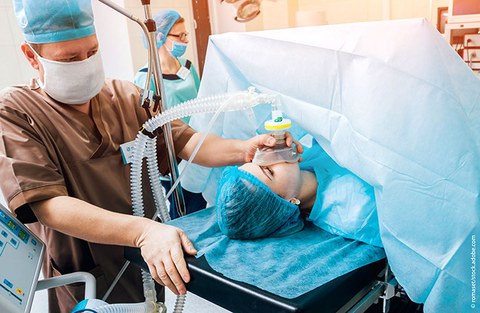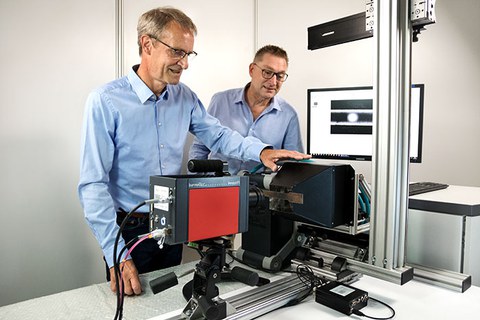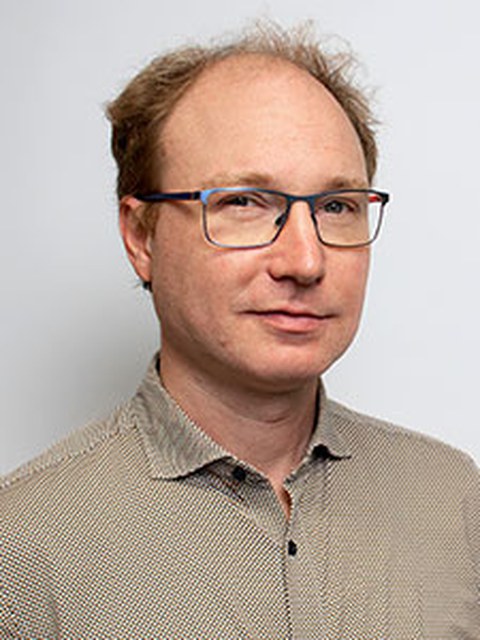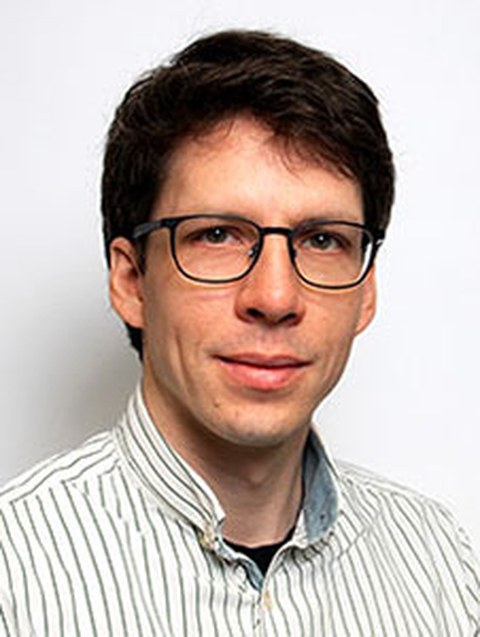Preserving and updating the expertise of company founders
Dagmar Möbius
Dr. Martin Ebermann and Dr. Fabian Göttfert work as Development Managers at InfraTec GmbH. The TUD alumni are thus largely responsible technological development at the Dresden-based company, which works on infrared sensors and measurement technology. At the former TUD spin-off, they represent a generational change.
Dr. Martin Ebermann studied Electrical Engineering with a specialization in precision engineering at TU Dresden from 1999 to 2005. Prof. Gerlach's lectures at the Institute of Solid State Electronics (IFE) brought him into contact with sensor technology and microsystems. “This could be something,” he thought at the time. Working as a student assistant at the Fraunhofer Institute for Photonic Microsystems (IPMS) reinforced this interest. There, he worked on characterizing micro-opto-electromechanical systems (MOEMS). This was followed by an internship at InfraTec, where he worked on developing circuitry and software for a CO2 sensor used to monitor indoor air. Finally, he was offered the opportunity to write his graduate thesis at InfraTec. His thesis focused on a MOEMS, namely a Fabry-Pérot filter, which can be used to realize compact spectrometric infrared (IR) sensors. The topic ultimately earned him his external doctorate at InfraTec. He now works as a Development Manager in the Sensor Technology Division.
Dr. Fabian Göttfert studied physics at TUD from 2006 to 2011, specializing in semiconductor and biophysics. He wrote his graduate thesis in the field of semiconductor physics and received his Ph.D. from the Max Planck Institute for Biophysical Chemistry in Göttingen, Germany. For this purpose, he developed microscopes for high-resolution microscopy. He has been working at InfraTec GmbH since 2017, first as a Development Engineer, then from 2019 as a Group Leader, and since 2023 as the head of the Development Department of the Infrared Measurement Technology Division.
Customized products made in Dresden
“We develop and manufacture high-quality infrared sensors,” explains Dr. Martin Ebermann. This includes medical devices used in anesthesia. CO2 sensors for ventilators continue to be sold in large numbers.
Many people remember the mechanical ventilators used during the COVID pandemic. Some of the sensors they contained were from InfraTec. “Our 14-person department team develops products with a high degree of customer specificity. This ranges from the development of materials to collaboration with research institutes and partners all over Germany and Europe. It is a very broad and interesting line of work.”

Anesthesia
Knowledge transfer in an interdisciplinary team
Dr. Fabian Göttfert's interdisciplinary department develops thermographic cameras and specialized software. The IR detectors used for this must first be tested. Are the pixels all working? Is the detector causing problems? How does it perform and how far can it be pushed? “This generates a large amount of data in a short period of time,” he says. This data is then evaluated by various experts. For example, an optical expert evaluates the imaging quality of the lenses, and application specialists evaluate suitability for the customer's application. Specially developed algorithms in the camera process the raw data and use it to calculate temperature readings. The camera housing needs to meet the highest standards and requires a precise design. The user software is also developed in-house, allowing for a high level of flexibility and quality. “All of this involves knowledge transfer,” summarizes Dr. Fabian Göttfert. “Not everyone can work exclusively in their own field; we have to think outside the box. A lot of times, people think it's clear how something is supposed to work. But if you don't compare your ideas with those of your colleagues, the project will hit a brick wall.”

Work in the thermography measurement laboratory
From meetings to the lab
For both development managers, a typical workday includes organizational aspects and project-related work. “Some deal with the basics of the technology, some are geared towards product development. We work in cross-departmental project teams, for example with the technology group of the design department and product management,” says Ebermann. “We usually work on several projects at the same time. Sometimes we're in the lab, sometimes we're in a meeting. Our company is an interesting employer.” There are also a number of exciting job opportunities currently available.
Combining knowledge and technology
“The expertise of each team member is extremely important,” says Dr. Fabian Göttfert. This is further enhanced through discussing ideas with research institutes, for example in joint research projects. Without cross-company collaboration, the innovations developed in these projects would not exist. The aim is to combine and expand know-how and technology. “Because it is hard to predict exactly what the outcome will be, this type of knowledge transfer is supported by funding. There is always a risk involved.” Dr. Martin Ebermann believes that it is very important to maintain relationships in the interest of both parties.
Representatives of generational change
InfraTec was founded more than 30 years ago as a spin-off of TUD. The company founders and employees who have been with the company from the very beginning will be retiring in the next few years. “We need to safeguard our expertise and find suitable successors,” says Dr. Fabian Göttfert, summing up one of the challenges of his day-to-day work. He and his colleague Dr. Martin Ebermann are aware that they represent a generational change.
Contact:
InfraTec GmbH
Infrared sensors and measurement technology
Tel.: +49 351 82876 0
E-mail:
Web


